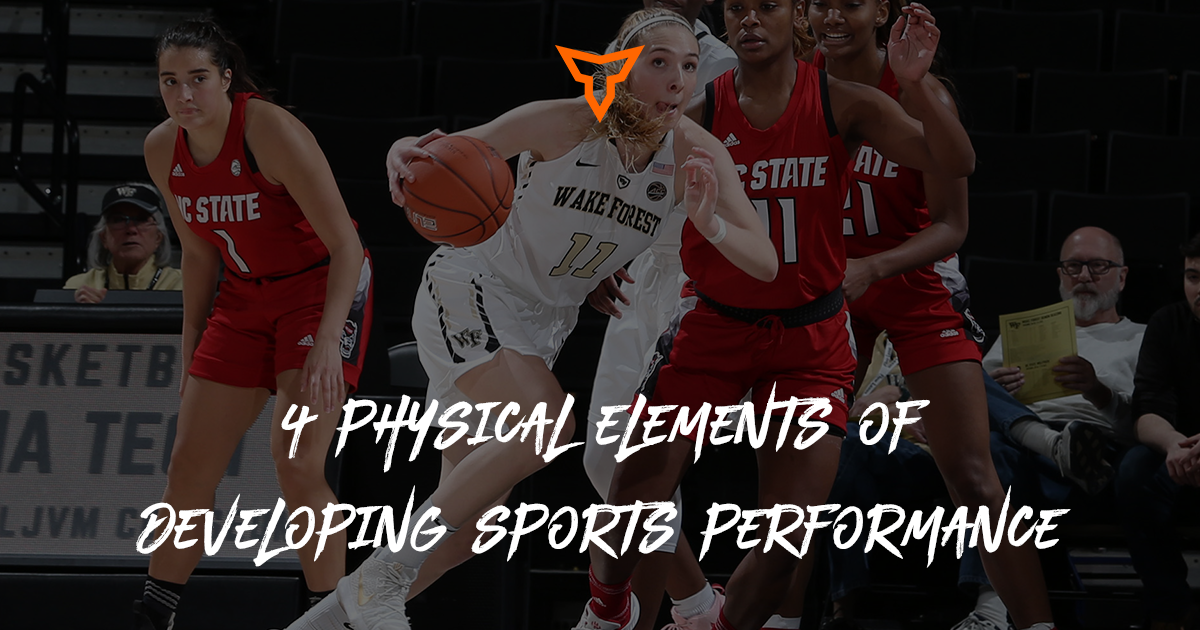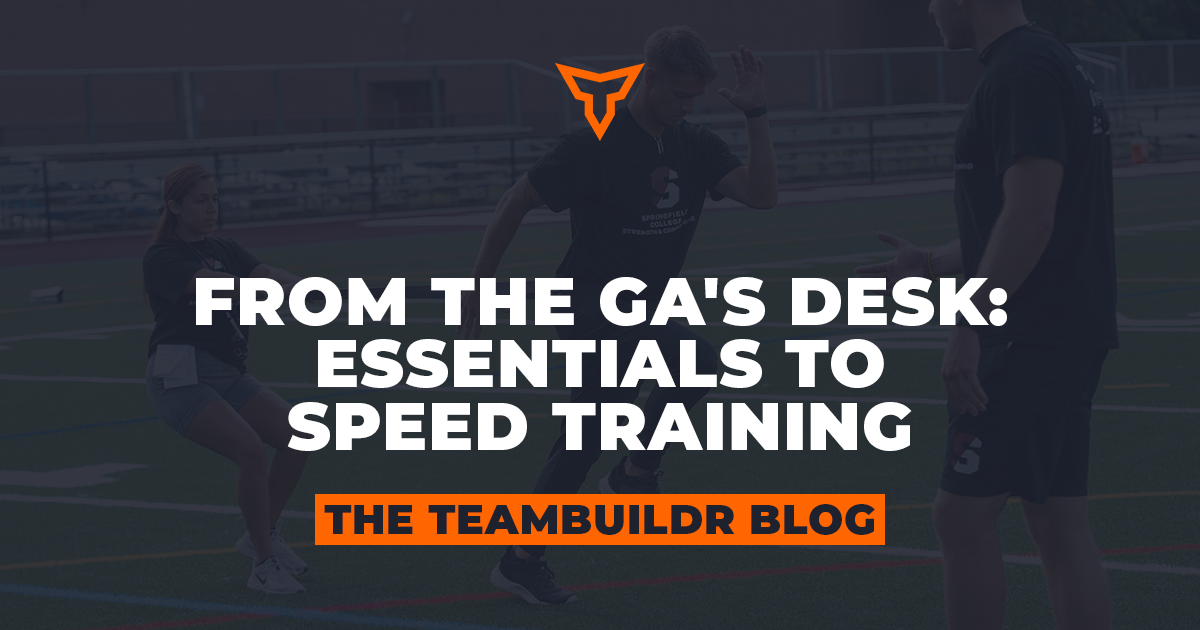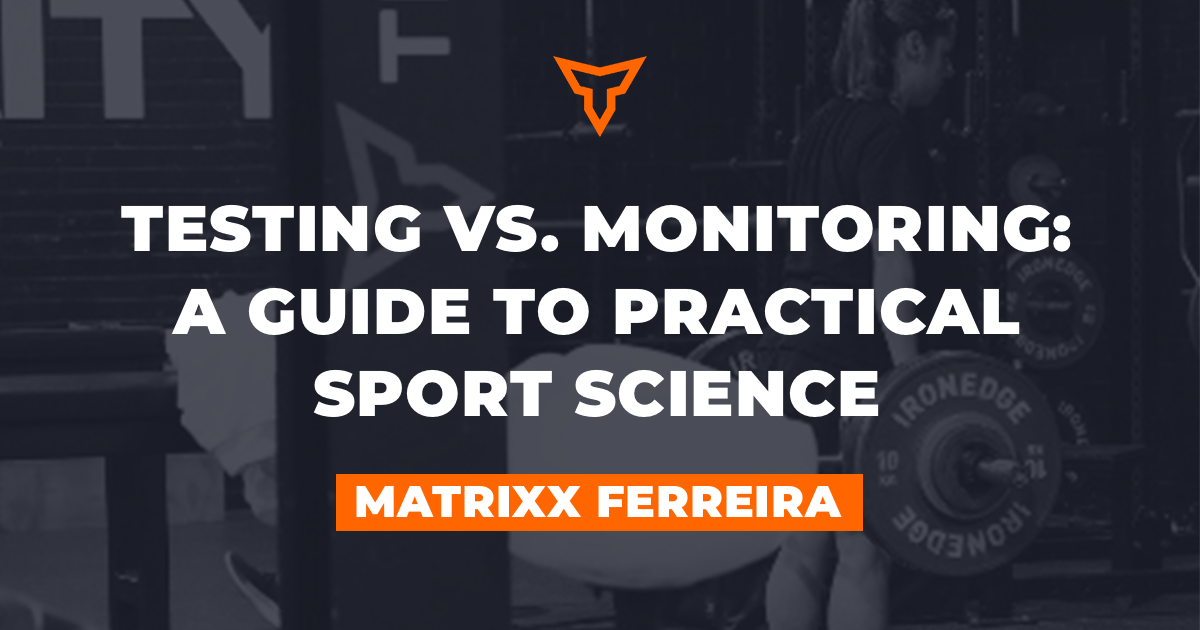One Strength Coach's Snapshot of Sport-Specific Training at the College Level
Before discussing the details of sport-specific training, it would be wise to first define what sport-specific training is. I define sport-specific training as creating a sound training plan that will enhance the performance of your athletes regardless of the sport they play. Preparing athletes for the demands of the sport he/she plays is as specific as their training needs to be. However, there is no absolute benefit or side-effect from implementing training programs that are designed to the specifications of the athlete's sport. Here are several points that explain both the pros and cons of sport specific strength training. Based on each coach's situation, these points can be taken into account in order to understand whether sport specific training is a good fit for their athletes:
Pros
- Reduce the risk of injury by preparing the athletes for a given task. For example, throwing a fastball. The reality is that certain sports are prone to specific injuries. Therefore, training for injury-prevention against those injuries proves to be an effective reason for training with sport specificity.
- Increase buy in with athletes and sport coaches. When a team engages in a program that they feel is designed specifically for the demands of their sport, they will have more confidence in the program and typically have more enthiusiasm for the programming. Coaches will also feel as if their team is gaining a marginal edge in the weight room.
- Increased performance. It is irrefutable that sport specific training can improve performance in a sport over non-sport specific training. That is not to say that it comes with some potential side-effects which we cover next.
Cons
- Development of the course of an athlete’s career can be neglected, if sufficient training does not occur. This is especially true for younger athletes that need general development much more than they need sport specific training development. Having a coach with lots of experience to make the judgement on the athlete's behalf is the best practice to prevent over-training.
- Skill confusion. The strength coach's job is to prepare the athlete for the sport by creating and improving physical traits that transfer to the playing surface. The strength coach is not a skills coach or a position coach -- the expectation that the strength coach should influence or improve an athlete's sports skills should never exist. Sports coaches, strength coaches, athletes and parents should ideally establish and recognize these boundaries.
- Overuse injuries can occur. The other side to the performance gains is injury risk which occurs with sport specialized training. Too much focus on certain aspects of training can neglect other components and create imbalances, among other potential injury issues.
In order to train for specificity, you must know the demands of the sport. In my career, I have had the opportunity to train athletes from sports that I have had no prior exposure to. Going to practices and asking questions to the sports coaches was one of the best things I have ever done as a Strength and Conditioning Coach. It is something I still do today, to build that relationship with our coaching staff and athletes.
The time of year will also dictate the level of specificity implemented in a training cycle. Here at East Carolina University I train Baseball, Women’s Soccer, Men’s Tennis, and Cross Country. Soccer is in the offseason which means we will be performing very general movement patterns to ensure that they will be able to apply and absorb force when August roles around. Through a learning complex early in the week, the team is learning how to Olympic clean, and then later in the week we will practice the full movement. The team is also in an eccentric phase will all other major movements (Bench Press, Squat, Push Ups, Glute Bridge) to give them the opportunity to lay the best foundation possible. Once this foundation is strong enough, it will only then be appropriate to apply sport specific patterns in the training program.
Here is what our barbell warm up looks like. We use this variation twice a week before we clean:
From the day this blog is written, baseball is a week away from opening day. This means our lifts have decreased in overall volume, while increasing in intensity. The rep scheme has dropped down to triples on Back Squat with the last set increasing to around 82% for the entire team. Our position players will be repping out triples with the cleans as well, while also knocking the volume down by a few sets. Over the course of the season, our volume will drop as we lower the rep scheme to doubles and then singles later in the year to ensure that the team is getting stronger while still able to perform at a high level.
Training a college baseball team is a beast of its own in the fact that it is not unusual to have 10-15 different programs going on at any given time due to the variety of needs a baseball player can have at any given time. For example, a strength coach can be responsible for starting pitcher routines, long relief routines, and "backend of the bullpen" guys who may have their own routines. Needless to say, Baseball's unique variety of requirements makes a strong case for sport specific training over general movements patterns, and the strength programs that account for these requirements will be delivering the marginal edge in performance over programs who do not.
The videos below are examples of rear foot elevated split squat, lateral lunge with shoulder flexion, and lateral broad jump into medicine ball throw:
In closing, my view on sport specific strength training is that it can be useful when done as presented above: in a timely manner, in a proper sequence and with the right level of variety. As a general rule, strength coaches should attempt to develop athletes in terms of the qualities of the sport and allow athletes to develop in the areas they are deficient in. Additionally, I believe it is appropriate to ask the sports coaches about the demands of the sport. Not only will the sports coach appreciate your interest, in the long run, they will put more trust into what you do in the weight room.
If you would like more information on how I use specificity in my programs feel free to reach out to me via email at goldend16@ecu.edu.
Subscribe to our blog
Subscribe to receive the latest blog posts to your inbox every week.
Related posts

4 Physical Elements Of Developing Sports Performance

From the GA's Desk: Essentials to Speed Training
